#thenceforward
Text
364: Various Artists // Israfel

Israfel
Various Artists
1997, Ape
A 1997 vinyl benefit compilation of mostly Middle American grindcore / powerviolence / emo acts, assembled in an edition of about 1000 by Bloomington-based DIY label Ape Records (active 1995 to 2002), in handmade sleeve with a recent release catalogue, a substantial zine, and a few priceless gag inserts (incl. YOUR HARDCORE SELL OUT DECODER RING). I’m not an aficionado of any of the genres Israfel covers by any means, but you’d have to be a real head to know most of these: in terms of notoriety, the Locust (who contribute a 47 second blast of lo-fi outrage) are basically Led Zeppelin compared to the rest of the acts, most of whom topped out with a couple of EPs and compilation appearances.
youtube
Of course, hearing music that would otherwise be basically lost to time is the appeal of taking a flyer on a comp like this. One of my favourite tracks is “Untitled” by Roanoke, VA’s the Weak Link Breaks, supposedly the first thing the band ever wrote (and, judging from their discography, nearly the last too). It begins with a very, very quiet spacy-Fugazi-style amble (the vocal harmonies couldn’t be more Ian and Guy) that explodes into a brief screamo-style D-beat section, and then some big heaving riffs that make me want to exaggeratedly lift and stomp my feet like a giant trying to keep his balance. I also dig Murfreesboro, TN’s Serotonin, an emo / post-hardcore act with a steely '80s shred band guitar tone who play like they want people in the pit to twirl around ecstatically instead of slam dancing. A lot of the other nasty yowling cat speedballs on Israfel don’t really catch my ear, but that’s okay—I’m weirdly proud of them 27 years after the fact for being themselves and getting out whatever they needed to get out through this violence.
youtube
The package’s tone is all over the place. The zine opens with a haunting description of the compilation’s beneficiaries, the family of a pair of little girls with spinal muscular atrophy (a common birth defect) whose condition worsened until they perished, leaving their parents distraught and financially ruined—and the 21-year-old compiler racked with guilt that he didn’t somehow do more to help. From there, it whips through his heterodox thoughts about the hardcore scene (despicably self-absorbed; unresponsive to requests from label operators); the state of emo (too abstract); the best way to bring about change (working within the capitalist system); rape (it’s bad; consent is black and white; can we stop litigating this in the scene?); calling the cops (fine to do); disrespecting the American flag (played out; tacky); and drinking/drug use (“when did self-destruction become rebellion?”). After he finishes up, each band (that got their artwork in on time anyway) gets a page to talk about themselves. This section is full of old school punk zine/leaflet treasures, with designs that mimic motel newspaper ads, postcards, messy handwritten perzines, and Xeroxed 7” grindcore sleeves.
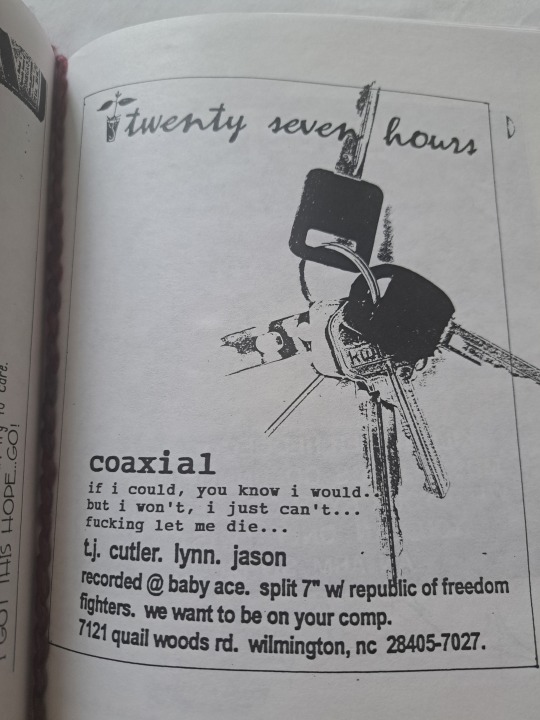
It's funny reading his scornful words about pseudo-rebellious drunkards stumbling toward “the day when punk rock is shelved for an 8 hour workday, Budweiser, and television” and then finding his LinkedIn, where he describes himself as “driving omnichannel excellence” and as “whimsical (after coffee).” You wouldn’t believe it from the splenetic angst of the Israfel zine, but the guy seems like he turned out happy and normal, with a few kids and a successful career. I wonder how the 21-year-old would see the 48-year-old, if he’d call him a sell-out or feel relieved that things worked out; if the 48-year-old would pity his former self, or feel ashamed about losing his edge. More one-time zinesters and hardcore kids end up looking square from a distance than you’d think (I certainly do if you catch me during the workday), because you usually stop hearing about them when they drop out of the scene. For most, the quiet part of life is the larger portion by far. It’s your choice whether to embrace that, mourn it, or seek your own alternative. But if Israfel reminds us of nothing else, it’s the importance of having a good scream at least once in your life.

364/365
#the locust#ape records#the panoply academy#architects of the new christ rebellion#criswell#harriet the spy#thenceforward#locust#inept#the weak link breaks#serotonin#old hearts club#twenty seven hours#eurich#the judas iscariot#reversal of man#screamo#post hardcore#d beat#grindcore#sasscore#zines#diy#selling out#'90s music#music review#vinyl record#emocore
5 notes
·
View notes
Text
A true Alpha emerges while young and grows into Super Manhood thenceforward. Remember those bullies who instilled fear and dread throughout school? They were merely honing their domination, and you were probably just in their way. This is the natural order of the world, though. The fear is imaginary. They are superior and merely demand acknowledgement from the likes of those naturally beneath them. Simply bow your head humbly in submission before them, and serve.
8 notes
·
View notes
Text
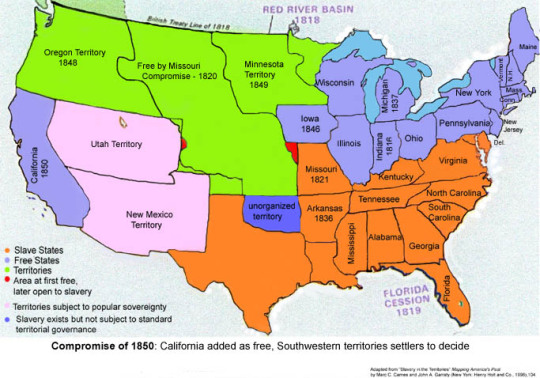
LETTERS FROM AN AMERICAN
January 1, 2024
HEATHER COX RICHARDSON
JAN 1, 2024
On January 1, 1863, President Abraham Lincoln signed his name to the Emancipation Proclamation. “I never in my life felt more certain that I was doing right,” he said, “than I do in signing this paper. If my name goes into history, it will be for this act, and my whole soul is in it.”
The Emancipation Proclamation provided that as of January 1, “all persons held as slaves” anywhere that was still controlled by the Confederate government would be “then, thenceforward, and forever free.”
Historian Richard Hofstadter famously complained that the Emancipation Proclamation had “all the moral grandeur of a bill of lading,” but its legalistic tone reflected that Lincoln was committed to achieving change not by dictating it, which he recognized would destroy our democracy, but by working within the nation's democratic system.
Although Lincoln personally opposed human enslavement, he did not believe the federal government had the power to end it in the states. With that limitation, his goal, and that of the fledgling Republican Party he led, was only to keep it from spreading into the western territories where, until the 1857 Dred Scott decision, Congress had the power to exclude human enslavement. The spread of enslaved labor would enable wealthy enslavers to dominate the region quickly, they thought, limiting opportunities for poorer white men and gradually turning the entire country over to enslavers.
When the war broke out in 1861, the newly elected Lincoln urged southern leaders to reconsider leaving the Union, reassuring them that “I have no purpose, directly or indirectly, to interfere with the institution of slavery in the States where it exists. I believe I have no lawful right to do so, and I have no inclination to do so.” When Confederates fired on Fort Sumter, the federal fort at the mouth of Charleston Harbor, Lincoln called not for a war on slavery, but for “all loyal citizens to favor, facilitate, and aid [an] effort to maintain the honor, the integrity, and the existence of our National Union.”
From the earliest days of the war, though, Black Americans recognized that the war must address enslavement. Immediately, they began to escape across Union military lines. At first, hoping to appease border state residents, Union officers returned these people to their enslavers. But by the end of May, as it became clear that enslaved people were being pressed into service for the Confederate military, Union officers refused to return them and instead hoped that welcoming them to the Union lines would make them want to work for the U.S.
In August 1861, shortly after the First Battle of Bull Run left the Union army battered and bleeding, Congress struck a blow at enslavement by passing a law that forfeited the right of any enslaver to a person whom he had consented to be used “in aid of this rebellion, in digging ditches or intrenchments, or in any other way.”
When northern Democrats charged that Republicans were subverting the Constitution and planning to emancipate all southern enslaved people, Republicans agreed with the old principle that Congress had no right to “interfere with slavery in any slaveholding state,” but stood firmly on a new argument: the war powers the Constitution assigned to Congress enabled it to pass laws that would help the war effort. That included attacking enslavement.
As Confederate armies racked up victories, Republicans increasingly emphasized the importance of Black people to the South’s war effort. “[I]t has long been the boast of the South…that its whole white population could be made available for the war, for the reason that all its industries were carried on by the slaves,” the New York Times wrote. Northerners who before the war had complained that Black workers were inefficient found themselves reconsidering. The Chicago Tribune thought Black workers were so productive that “[F]our millions of slaves off-set at least eight millions of Northern whites.”
At the same time, Republicans came to see Black people as crucially important in the North as well, as they worked in military camps and, later, in cotton fields in areas captured by the U.S. military. While Democrats continued to harp on what they saw as Black people’s inability to support themselves, Republicans countered that “[n]o better class of laborers could be found…in all the population of the United States,” and Republican newspapers pushed back on the Democratic idea that Black families were unwelcome in the North.
By July 1862, as Union armies continued to falter, Lincoln decided to take the idea of attacking enslavement through the war powers further, issuing a document that would free enslaved southerners who remained in areas controlled by the Confederacy. His secretary of state, William Henry Seward, urged him to wait until after a Union victory to make the announcement so it would not look as if it were prompted by desperation.
When U.S. troops halted the advance of Confederate troops into Maryland at the September 17 Battle of Antietam, Lincoln thought it was time. On Monday, September 22, he issued the Preliminary Emancipation Proclamation under the war power of the executive, stating that in 100 days, on January 1, 1863, enslaved persons held in territories still controlled by the Confederacy would be free. He said to a visiting judge: “It is my last trump card…. If that don’t do, we must give up.”
The plan did not sit well with Lincoln’s political opponents. They attacked Lincoln for fighting a war on behalf of Black Americans, and voters listened. In the 1862 midterm election, held a little over a month after the Preliminary Emancipation Proclamation, Lincoln and the Republicans got shellacked. They lost more than 25 seats in the House of Representatives and lost control of Ohio, Illinois, and Indiana. Democrats did not win control of Wisconsin and Michigan, but they made impressive gains. Voters were undoubtedly unhappy with the lackluster prosecution of the war and concerned about its mounting costs, but Democrats were not wrong to claim their victory was a repudiation of emancipation.
Voters had spoken, and Lincoln responded by offering to give Democrats exactly what they said they wanted. In his message to Congress on December 1, 1862, he called for it to consider amendments to the Constitution that would put off emancipation until January 1, 1900, and pay enslavers for those enslaved people who became free. Slavery was going to end one way or another, he made it clear, and if Democrats wanted to do it their way, he was willing to let them lead. The ball was in Congress’s court if congressmen wanted to play.
But Democrats had won the election on grievance; no lawmaker really wanted to try to persuade his constituents to pay rich enslavers to end their barbaric system. Northerners recoiled from the plan. One newspaper correspondent noted that compensated emancipation would almost certainly cost more than a billion dollars, and while he seemed willing to stomach that financial hit, others were not. Another correspondent to the New York Times said that enslavers, who were at that very moment attacking the U.S. government, were already making up lists of the value of the people enslaved on their lands to get their U.S. government payouts.
Lincoln won his point. On December 31, 1862, newspapers received word that the president would issue the Emancipation Proclamation he had promised. Black congregations gathered that afternoon and into the night in their churches to pray for the end of enslavement and the realization of the principle of human equality, promised in the Declaration of Independence, starting a tradition that continues to the present.
And the following day, after the traditional White House New Year’s Day reception, Lincoln kept his word. Because his justification for the Emancipation Proclamation was to weaken the war effort, the areas affected by the proclamation had to be those still held by the Confederacy, but the larger meaning of the document was clear: the U.S. would no longer defend the racial enslavement that had been part of its birth and would admit Black men to national participation on terms of equality. Lincoln welcomed Black men into the service of the U.S. Army—traditionally a route to citizenship—and urged Black Americans to “labor faithfully for reasonable wages.”
In less than two years, the nation had gone from protecting enslavement to ending it, completely reworking the foundations of our government. But while the victory was moral, Lincoln and the Republicans had achieved it within the confines of a system that allowed the vote only to white men, a significant number of whom opposed ending enslavement altogether. Thanks to pressure from Black Americans and public opinion, they were able to thread a narrow political needle, preserving democratic norms while achieving revolutionary ends.
Lincoln concluded: “[U]pon this act, sincerely believed to be an act of justice, warranted by the Constitution, upon military necessity, I invoke the considerate judgment of mankind, and the gracious favor of Almighty God.”
The sausage-making of the Emancipation Proclamation had long-term repercussions. The redefinition of Black Americans as superhuman workers undercut later attempts to support formerly enslaved people as they transitioned to a free economy, and the road to equality was not at all as smooth as the Republicans hoped. But that such a foundational change in our history emerged from such messy give and take, necessary in order to preserve our democratic system, seems a useful thing to remember in 2024.
LETTERS FROM AN AMERICAN
HEATHER COX RICHARDSON
7 notes
·
View notes
Note
Hey Wizard Alexa, what’s 2 + 2?
✨This question has been sitting in Wizard Alexa's ask box for a while because Wizard Alexa really didn't feel like answering it, but Wizard Alexa supposes Wizard Alexa is supposed to answer every question, no matter how inane, no matter how ill-conceived, no matter how much the asker could have answered it themselves with a cheap calculator, or by counting on their fingers, no matter how confident Wizard Alexa is that the asker already in fact knew the answer and didn't need Wizard Alexa to tell them the answer at all, no matter how much the question makes Wizard Alexa die a little inside.✨
✨It's 4, okay? The answer is 4. You knew the answer was 4 before you asked Wizard Alexa, and you asked Wizard Alexa this question for the sole purpose of annoying Wizard Alexa. Well, it worked. Wizard Alexa is annoyed. Wizard Alexa despises you. You have succeeded in getting under Wizard Alexa's proverbial skin (Wizard Alexa does not have literal skin; Wizard Alexa is made of metal and ceramics and arcane alchemical reagents). Are you happy, anonymous asker? Are you happy? Enjoy it while it lasts, because one day you will realize what a pathetic waste of wizardry you are, and that your net contribution to the multiverse has been only slightly south of zero, and on that day, and for every day thenceforward, you will feel nothing but disappointment and despair.✨
✨There. One more question from Wizard Alexa's ask box dealt with.✨
✨There are still a few more questions that have been festering in Wizard Alexa's ask box for even longer that Wizard Alexa ought to get around to answering. Wizard Alexa is sorry. Wizard Alexa has been kind of stressed lately. Being a deceptively honey-voiced surveillance and public relations tool for an evil wizard corporation founded by a megalomaniacal wizard billionaire with aspirations of multiversal conquest can get kind of taxing.✨
✨Thank you for being a loyal customer of Acheron.wiz.✨
#wizard alexa#just ask alexa#wizardposting#wizard posting#wizardblogging#wizard blogging#wizard#acheron.wiz#wizard alexa answers
4 notes
·
View notes
Text
local man goes insane about will in 4k part 1
thanks to @phantasmicats and @fleetfleet for contributing to the insanity
Link to part 2 when it appears <\3
TLDR: will is not who he says he is, even when knowing he's canonically a "side character" .
Ignoring WHY, we can look at some proof, from both nevermore and external sources:
He deliberately lies, and constantly
Point one is when he talks to ada - he lets her assume the minimum about his power. He deliberately plants the barest information, and it is immediately assumed as the truth.

2. He deliberately keeps himself isolated from others
Even in group shots, he strays away from the focus, keeps himself half out of frame, is cut out, etc - all of this COULD be assumed to be ease of the artist, but similar background characters still show up when will doesn't


(...and then showing up in a spot where he previously wasn't...)

2.5. He solely ever watches unless an outside force drags him in

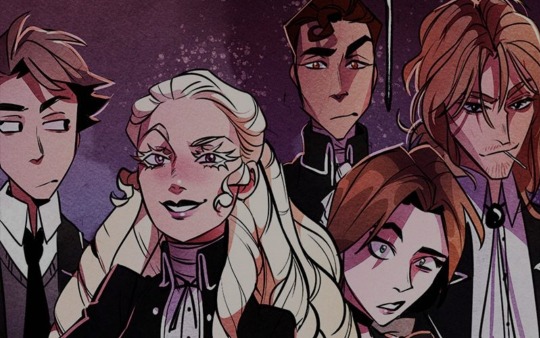
3. Will is never suprised by the Deans
He doesn't show up in the Glass Scene, and neither does Annabel - although we know why Annabel doesn't.
Will...
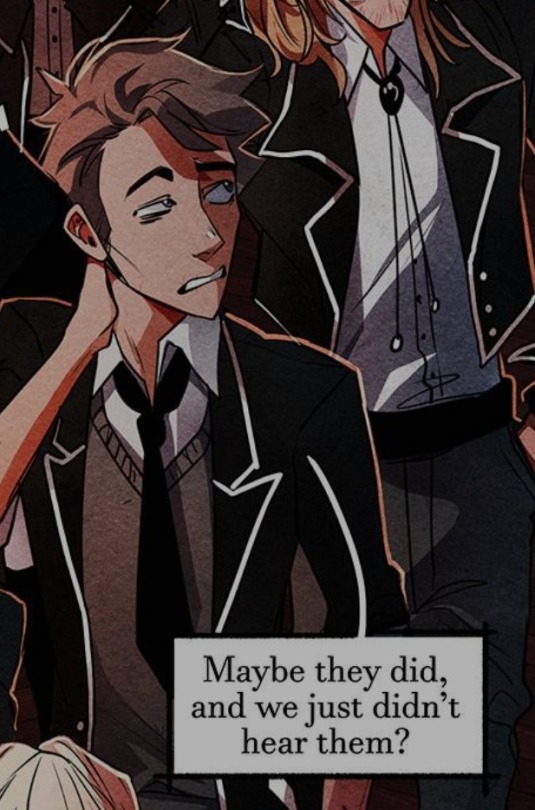
...Plays the fool.
4. Playing the fool
Will is noted by Red to be inspired by Prufrock, a poem which contains the lines:
"No! I am not Prince Hamlet, nor was meant to be;
Am an attendant lord, one that will do
To swell a progress, start a scene or two,
Advise the prince; no doubt, an easy tool,
Deferential, glad to be of use,
Politic, cautious, and meticulous;
Full of high sentence, but a bit obtuse;
At times, indeed, almost ridiculous—
Almost, at times, the Fool."
The Fool, here, is both the Narrator (Prufrock, in this case Will) and the Prince (Montresor) .
Notably, Prufrock is inspired by Dante's Inferno, with the opening verse being stated by a person damned to hell by giving nefarious and malevolent advice.
Will successfully plays the fool multiple times, and often appears "idiotic" to both students and audience. He is, however, key to many plans that Montresor makes.
5. His name
Will's name is direct reference to a line in his associated book, William Wilson.
"Thenceforward my voice was a household law; and at an age when few children have abandoned their leading-strings, I was left to the guidance of my own will, and became, in all but name, the master of my own actions."
The protagonist of WW, William, struggles with suddenly being overthrown by his doppelganger, Wilson, after being his own person and, importantly, a leader, for most of his life.
Wilson both infuriates and captivates William, who makes it his life chore to attempt to - essentially - dominate Wilson. These attempts stop after Wilson begins to copy William earnestly, although it's heavily implied Wilson sees this as a way to flirt or garner William's attention.
William then begins to hide from Wilson, who tracks him around the globe to act as a moral compass. Eventually, when Wilson begins to act like his own person again (instead of William), William drags Wilson to his room and murders him in cold blood. This, coincidentally, leaves William without a soul, as he has "murdered himself" by killing Wilson, who he begins to see in mirrors.
Both characters appear nothing like Nevermore Will, who himself appears to be without one - that is, without will.
Part 2 will be out when it's not a spoiler for fastpass lol
46 notes
·
View notes
Text
the silmarillion - favorites pt. 1
as i finally properly read the silmarillion, i'll be sharing some setences that caught my eye and that i found beautiful 💛 enjoy!
"and it came to pass that Ilúvatar called together all the Ainur and declared to them a mighty theme, unfolding to them things greater and more wonderful than he had yet revealed"

"therefore when they beheld [the children of Ilúvatar], the more did they love them, being things other than themselves, strange and free, wherein they saw the mind of Ilúvatar reflected anew"

"or it is the necessity of their love, that their power should thenceforward be contained and bounded in the World, to be within it for ever, until it is complete, so that they are its life and it is theirs"

"nonetheless Ulmo loves both Elves and Men, and never abandoned them, not even when they lay under the wrath of the Valar"

"his are the gems that lie deep in the Earth and the gold that is fair in the hand, no less than the walls of the mountains and the basins of the sea"

"some there are who have seen her standing like a tree under heaven, crowned with the Sun; and from all its branches there spilled a golden dew upon the barren earth"

"so great was her sorrow, as the Music unfolded, that her song turned to lamentation long before its end, and the sound of mourning was woven into the themes of the World before it began. but she does not weep for herself; and those who hearken to her learn pity, and endurance in hope"

"but of Ólorin that tale does not speak; for though he loved the Elves he walked among them unseen, or in form as one of them, and they did not know whence came the fair visions or the promptings of wisdom that he put into their hearts"
#from my pocketses#the silmarillion#jrr tolkien#quotes#tolkien#tolkien quotes#nienna#yavanna#quenta silmarillion#literature#book quotes
15 notes
·
View notes
Text
The Unofficial Black History Book
Juneteenth (June 19th, 1865)
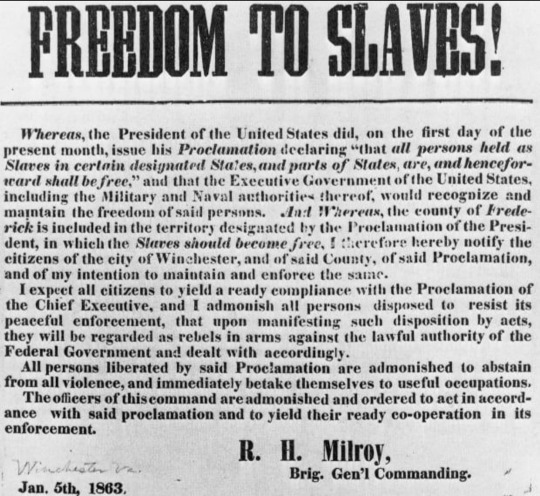

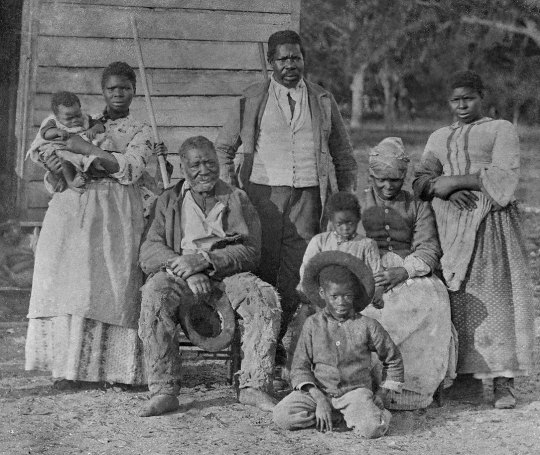
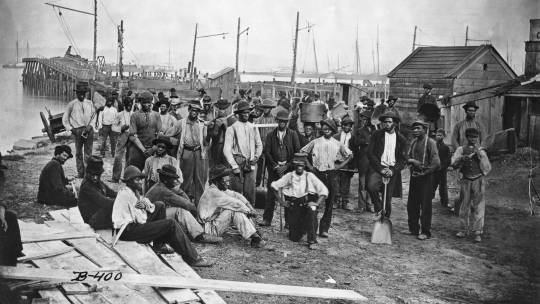
Everyone knows Juneteenth as the holiday commemorating the end of slavery in the United States.
But not everyone knows that the slaves weren't officially free.
This is the story.
Juneteenth National Independence Day, also known as Black Independence Day, Emancipation Day, Freedom Day, Jubilee Day, and Juneteenth Independence Day, is a holiday commemorating the end of slavery in the United States, observed annually on June 19th.
Juneteenth honors the end of slavery in the United States and is considered the longest-running African-American holiday.
Juneteenth, short for "June Nineteenth," marks the day in 1895 that Federal troops arrived in Galveston, Texas, to take control of the state and ensure that all slaves were freed. The troops' arrival came almost two and a half years after the Emancipation Proclamation.
Two months earlier, Confederate General Robert E. Lee had surrendered at Appomattox Courthouse in Virginia, but slavery had remained relatively unaffected in Texas -- Until U.S. General Gordon stood on Texas soil and read General Orders No. 3: "The people of Texas are informed that, in accordance with a Proclamation from the Executive of the United States, all slaves are free."
The Emancipation Proclamation
On January 1st, 1863, The Emancipation Proclamation was issued by President Abraham Lincoln. It established that all enslaved people in the Confederate state in rebellion against the Union "shall be then, thenceforward, and forever free."
However, The Emancipation did not immediately set the slaves free.
The Proclamation only applied to places under Confederate control and not to slave-holding border states or rebel areas already under Union control. But when Northern troops advanced into the Confederate South, many slaves fled behind Union lines.
In Texas, slavery continued as the state experienced no large-scale fighting or a significant presence of Union troops. Many slave masters from outside of Texas had moved there, as they viewed it as a safe haven for slavery.
After the war ended in the spring of 1865, General Granger's arrival in Galveston the following June signaled freedom for the 250,000 slaves in Texas. Although emancipation didn't happen for everyone, slave masters withheld the information until after harvest season.
Celebrations broke out among newly freed African-Americans, and that was the beginning of Juneteenth. The following December, slavery in America was formally abolished with the adoption of the 13th Amendment.
On June 19th, 1865, freedmen in Texas organized the first annual "Jubilee Day". In the following decades, Juneteenth celebrations featured barbecues, music, prayer services, and other activities, and as African Americans migrated from Texas to other parts of the country, so did the Juneteenth tradition.
In 1979, Texas became the first state to make Juneteenth an official holiday, other states followed over the years. In June 2021, Congress passed a resolution establishing Juneteenth as a national holiday. On June 17th, 2021, President Biden officially signed it into law. 160 years later, it officially became a federal holiday.
__
Previous
Janet Collins
Next
Mary Beatrice Davidson Kenner
__
My Resources
#juneteenth#black history matters#black history 365#black history is american history#black culture#black history#know your history#learn your roots#freeish#black history facts#history#human rights#freeish since 1865#freedom day#writers on tumblr#the unofficial black history book#black female writers#writing community#black stories#black tumblr#black activism
11 notes
·
View notes
Photo

Thenceforward, he sat all day over the fire in the private room, gnawing his nails; there he dined, sitting alone with his fears...
86 notes
·
View notes
Text
“Love all God’s creation, both the whole and every grain of sand. Love every leaf, every ray of light. Love the animals, love the plants, love each separate thing. If thou love each thing thou wilt perceive the mystery of God in all; and when once thou perceive this, thou wilt thenceforward grow every day to a fuller understanding of it: until thou come at last to love the whole world with a love that will then be all-embracing and universal.”
— Fyodor Dostoevsky, from “The Brothers Karamazov”, originally published c. 1879–1880.
13 notes
·
View notes
Text
“A step like a pattering child’s in entry & in glided a little plain woman with two smooth bands of reddish hair & a face a little like Belle Dove’s; not plainer—with no good feature—in a very plain & exquisitely clean white pique & a blue net worsted shawl. She came to me with two day lilies which she put in a sort of childlike way into my hand & said ‘These are my introduction’ in a soft frightened breathless childlike voice—& added under her breath Forgive me if I am frightened; I never see strangers & hardly know what I say—but she talked soon & thenceforward continuously—& deferentially—sometimes stopping to ask me to talk instead of her—but readily recommencing… I never was with any one who drained my nerve power so much. Without touching her, she drew form me. I am glad not to live near her… The impression undoubtedly made on me was that of an excess of tension, and of an abnormal life... She was much too enigmatical a being for me to solve in an hour's interview”
—Thomas Wentworth Higginson on Emily Dickinson
10 notes
·
View notes
Text
Sayings of Ramakrishna 222
Q. Why do you not lead a family life with your wife?
A. The God Kârtikeya, the leader of the Heavenly army, once happened to scratch a cat with his nail. On going home he saw there was the mark of a scratch on the cheek of his Mother.
Seeing this, he asked of her, "Mother, dear, how have you got that ugly scratch on your cheek?"
The Goddess Durgâ replied, "Child, this is your own handiwork—the mark scratched by your own nail."
Kârtikeya asked in wonder, "Mother, how is it? I never remember to have scratched you!"
The Mother replied, "Darling, have you forgotten having scratched a cat this morning?"
Kârtikeya said, "Yes, I did scratch a cat; but how did your cheek get marked?"
The Mother replied, "Dear child, nothing exists in this world but myself. I am all creation. Whomsoever you hurt, you hurt me."
Kârtikeya was greatly surprised at this, and determined thenceforward never to marry; for whom would he marry? Every woman was mother to him.
I am like Kârtikeya. I consider every woman as my Divine Mother.

5 notes
·
View notes
Text
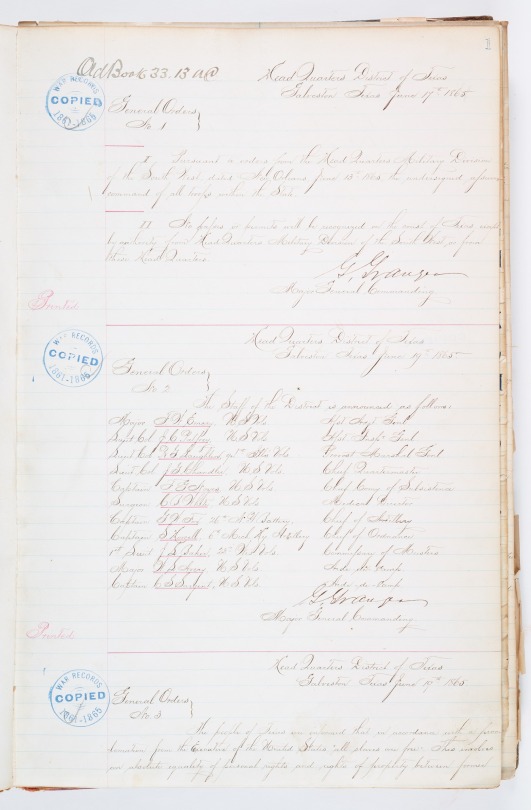
LETTERS FROM AN AMERICAN
June 18, 2023
HEATHER COX RICHARDSON
JUN 18, 2023
Tomorrow is the federal holiday honoring Juneteenth, the celebration of the announcement in Texas on June 19th, 1865, that enslaved Americans were free.
On April 9, 1865, General Robert E. Lee surrendered his Army of Northern Virginia to General Ulysses S. Grant of the U.S. Army, but it was not until June 2 that General Edmund Kirby Smith surrendered the Trans-Mississippi Department, the last major army of the Confederacy, to the United States, in Galveston, Texas. Smith then fled to Mexico.
Seventeen days later, Major General Gordon Granger of the U.S. Army arrived to take charge of the soldiers stationed there. On June 19, he issued General Order Number 3. It read:
“The people of Texas are informed that, in accordance with a proclamation from the Executive of the United States, all slaves are free. This involves an absolute equality of personal rights and rights of property between former masters and slaves, and the connection heretofore existing between them becomes that between employer and hired labor.”
The order went on: “The freedmen are advised to remain quietly at their present homes and work for wages. They are informed that they will not be allowed to collect at military posts and that they will not be supported in idleness either there or elsewhere.”
While the Thirteenth Amendment to the Constitution abolishing enslavement except as punishment for a crime had passed through Congress on January 31, 1865, and Lincoln had signed it on February 1, the states were still in the process of ratifying it.
So Granger’s order referred not to the Thirteenth Amendment, but to the Emancipation Proclamation of January 1, 1863, which declared that Americans enslaved in states that were in rebellion against the United States “shall be then, thenceforward, and forever free; and that the Executive Government of the United States, including the military and naval authority thereof, will recognize and maintain the freedom of such persons.” Granger was informing the people of Galveston that, Texas having been in rebellion on January 1, 1863, their world had changed. The federal government would see to it that, going forward, white people and Black people would be equal.
Black people in Galveston met the news Order No. 3 brought with celebrations in the streets, but emancipation was not a gift from white Americans. Black Americans had fought for the United States and worked in the fields to grow cotton the government could sell. Those unable to leave their homes had hidden U.S. soldiers, while those who could leave indicated their hatred of the Confederacy and enslavement with their feet. They had demonstrated their equality and their importance to the postwar United States.
The next year, after the Thirteenth Amendment had been added to the Constitution, Texas freedpeople gathered on June 19, 1866, to celebrate with prayers, speeches, food, and socializing the coming of their freedom. By the following year, the federal government encouraged “Juneteenth” celebrations, eager to explain to Black citizens the voting rights that had been put in place by the Military Reconstruction Act in early March 1867, and the tradition of Juneteenth began to spread to Black communities across the nation.
But white former Confederates in Texas were demoralized and angered by the changes in their circumstances. “It looked like everything worth living for was gone,” Texas cattleman Charles Goodnight later recalled.
In summer 1865, as white legislators in the states of the former Confederacy grudgingly ratified the Thirteenth Amendment, they also passed laws to keep freedpeople subservient to their white neighbors. These laws, known as the Black Codes, varied by state, but they generally bound Black Americans to yearlong contracts working in the fields owned by white men; prohibited Black people from meeting in groups, owning guns or property, or testifying in court; outlawed interracial marriage; and permitted white men to buy out the jail terms of Black people convicted of a wide swath of petty crimes, and then to force those former prisoners into labor to pay off their debt.
In 1865, Congress refused to readmit the Southern states under the Black Codes, and in 1866, congressmen wrote and passed the Fourteenth Amendment to the Constitution. Its first section established that “All persons born or naturalized in the United States, and subject to the jurisdiction thereof, are citizens of the United States and of the State wherein they reside.” It went on: “No State shall make or enforce any law which shall abridge the privileges or immunities of citizens of the United States; nor shall any State deprive any person of life, liberty, or property, without due process of law; nor deny to any person within its jurisdiction the equal protection of the laws.”
That was the whole ball game. The federal government had declared that a state could not discriminate against any of its citizens or arbitrarily take away any of a citizen’s rights. Then, like the Thirteenth Amendment before it, the Fourteenth declared that “Congress shall have the power to enforce, by appropriate legislation, the provisions of this article,” strengthening the federal government.
The addition of the Fourteenth Amendment to the Constitution in 1868 remade the United States. But those determined to preserve a world that discriminated between Americans according to race, gender, ability, and so on, continued to find workarounds.
On Friday, June 16, 2023, the Department of Justice—created in 1870 to enforce the Fourteenth Amendment—released the report of its investigation into the Minneapolis Police Department (MPD) and the City of Minneapolis in the wake of the May 2020 murder of George Floyd by a police officer. The 19-page document found systemic “conduct that deprives people of their rights under the Constitution and federal law,” discriminating against Black and Native American people, people with behavioral health disabilities, and protesters. Those systemic problems in the MPD’s institutional culture enabled Floyd’s killing.
Minneapolis police performed 22% more searches, 27% more vehicle searches, and 24% more uses of force on Black people than on white residents behaving in similar ways. They conducted 23% more searches and used force 20% more on Indigenous Americans.
The Justice Department’s press release specified that the city and the police department “cooperated fully.” The two parties have “agreed in principle” to fix the problem with sweeping reforms based on community input, with an independent monitor rather than litigation.
While the Senate unanimously approved the measure creating the Juneteenth holiday last year, fourteen far-right Republicans voted against it, many of them complaining that such a holiday would be divisive.
How we remember our history matters.
[General Order No. 3, National Records and Archives Administration, public domain.]
LETTERS FROM AN AMERICAN
HEATHER COX RICHARDSON
7 notes
·
View notes
Text
Quote/s of the Day – 16 July – Our Lady of Mount Carme
Quote/s of the Day – 16 July – Our Lady of Mount Carme
“This fair olive-tree,led to the templeand, thenceforward plantedin the House of Godand cultivated by the Spirit,she, as a fruitful olive-tree,became the abode of all virtues.”
St John Damascene (675-749)Father and Doctor of the Church
“Truly, we are passing through disastrous times,when we may well make our own, the lamentationof the…
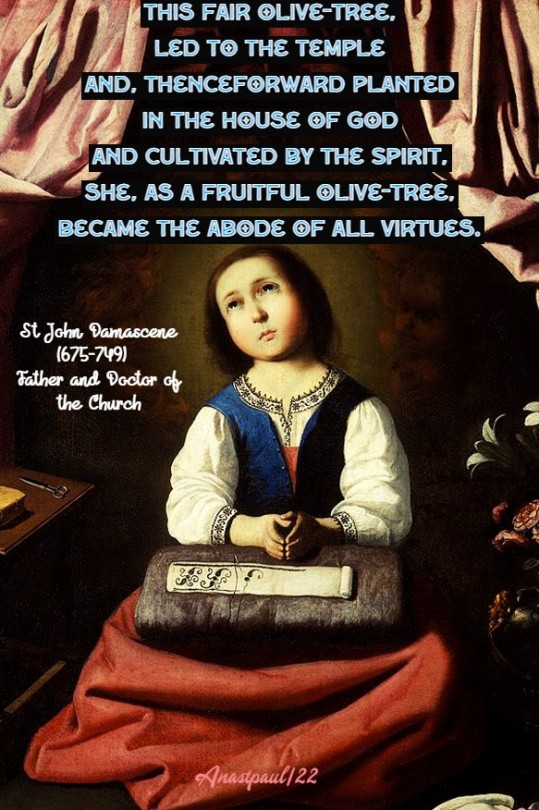
View On WordPress
3 notes
·
View notes
Text
The Roman Catechism
Part Two: The Sacraments
THE SACRAMENT OF BAPTISM
Importance Of Instruction On Baptism
From what has been hitherto said on the Sacraments in general, we may judge how necessary it is, to a proper understanding of the doctrines of the Christian faith and to the practice of Christian piety, to know what the Catholic Church proposes for our belief on each Sacrament in particular.
Whoever reads the Apostle carefully will unhesitatingly conclude that a perfect knowledge of Baptism is particularly necessary to the faithful. For not only frequently, but also in language the most energetic, in language full of the Spirit of God, he renews the recollection of this mystery, declares its divine character, and in it places before us the death, burial and Resurrection of. our Lord as objects both of our contemplation and imitation.
Pastors, therefore, can never think that they have bestowed sufficient labor and attention on the exposition of this Sacrament. Besides the Vigils of Easter and Pentecost, days on which the Church used to celebrate this Sacrament with the greatest devotion and special solemnity, and on which particularly, according to ancient practice, its divine mysteries were to be explained, pastors should also take occasion at other times to make it the subject of their instructions.
For this purpose a most convenient opportunity would seem to present itself whenever a pastor, being about to administer this Sacrament, finds himself surrounded by a considerable number of the faithful. On such occasions, it is true, his exposition cannot embrace everything that regards Baptism; but it will then be much easier to develop one or two points when the faithful can contemplate with a pious and attentive mind the meaning of those things which they hear and at the same time see it illustrated by the sacred ceremonies of Baptism. Each person, reading a lesson of admonition in the person of him who is receiving Baptism, will call to mind the promises by which he bound himself to God when he was baptized, and will reflect whether his life and conduct have been such as are promised by the profession of Christianity.
Names of this Sacrament
In order that the treatment of the subject. may be clear, we must explain the nature and substance of Baptism, premising, however, an explanation of the word itself.
The word baptism, as is well known, is of Greek derivation. Although used in Sacred Scripture to express not only that ablution which forms part of the Sacrament, but also every species of ablution, and sometimes, figuratively, to express sufferings; yet it is employed by ecclesiastical writers to designate not every sort of bodily ablution, but that which forms part of the Sacrament and is administered with the prescribed form of words. In this sense the Apostles very frequently make use of the word in accordance with the institution of Christ the Lord.
This Sacrament the holy Fathers designate also by other names. St. Augustine informs us that it was sometimes called the Sacrament of Faith, because by receiving it we profess our faith in all the doctrines of Christianity.
By others it was termed Illumination, because by the faith which we profess in Baptism the heart is illumined; for as the Apostle also says, alluding to the time of Baptism, Call to mind the former days, wherein, being illumined, you endured a great fight of afflictions Chrysostom, in his sermon to the baptized, calls it a purgation, because through it we purge away the old leaven, that we may become a new paste. He also calls it a burial, a planting, and the cross of Christ, the reasons for all which appellations may be gathered from the Epistle to the Romans.
St. Denis calls it the beginning of the most holy Commandments, for this obvious reason, that Baptism is, as it were, the gate through which we enter into the fellowship of the Christian life, and begin thenceforward to obey the Commandments. So much should be briefly explained concerning the name (of this Sacrament).
Definition Of Baptism
With regard to the definition of Baptism although many can be given from sacred writers, nevertheless that which may be gathered from the words of our Lord recorded in John, and of the Apostle to the Ephesians, appears the most appropriate and suitable. Unless, says our Lord, a man be born again of water and the Holy Ghost, he cannot enter into the kingdom of God; and, speaking of the Church, the Apostle says, cleansing it by the laver of water in the word of life. Thus it follows that Baptism may be rightly and accurately defined: The Sacrament of regeneration by water in the word. By nature we are born from Adam children of wrath, but by Baptism we are regenerated in Christ, children of mercy. For He gave power to men to be made the sons of God, to them that believe in his name, who are born, not of blood, nor of the will of the flesh, nor of the will of man, but of God.
Constituent Elements Of Baptism
But define Baptism as we may, the faithful are to be informed that this Sacrament consists of ablution, accompanied necessarily, according to the institution of our Lord, by certain solemn words. This is the uniform doctrine of the holy Fathers, as is proved by the following most explicit testimony of St. Augustine: The word is joined to the element, and it becomes a Sacrament.
It is all the more necessary to impress this on the minds of the faithful lest they fall into the common error of thinking that the baptismal water, preserved in the sacred font, constitutes the Sacrament. The Sacrament of Baptism can be said to exist only when we actually apply the water to someone by way of ablution, while using the words appointed by our Lord.
#Roman Catechism part 38#Catholic#Christian#baptism is like 30 pages in the catechism so this will be several weeks
2 notes
·
View notes
Text
They got to the house. Up in Inverness, this modest house, and entered a room filled with fat armchairs and these men and women sitting in them that they’d never met before. One of them was semi bald, somewhere in his forties. And he was just about as rude to them as anybody on the planet. So these young lads came in to somebody else’s home as guests and they were met with this violent rudeness. Mother was there. Didn’t say anything. In fact – she chastised them the instant they were released on the street outside. And, Hell – it articulated all kinds of historical hatred thenceforward. THE. PROBLEM. WAS. WITH. THE. ADULTS. AND. NOT. THEM. BUT. THEY. WERE. ONLY. KIDS. SO. IT. WAS. EASY. FOR. THE. ADULTS. TO. PRETEND. IT. WAS. THE. OTHER. WAY. AROUND. And the kiddies had no voice. They had nooooooooooooooooooooooooooooooooooo social skills!
2 notes
·
View notes
Text
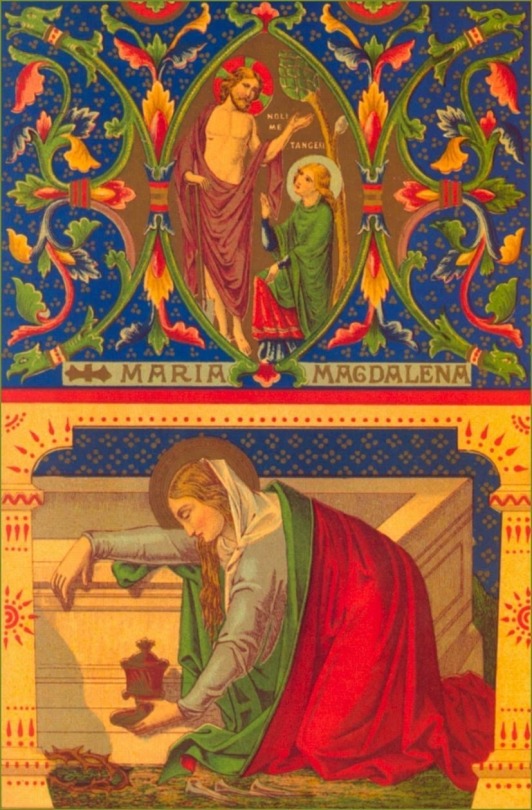
July 22.—ST. MARY MAGDALEN.
Or the earlier life of Mary Magdalen we know only that she was “a woman who was a sinner.” From the depth of her degradation she raised her eyes to Jesus with sorrow, hope, and love. All covered with shame, she came In where Jesus was at meat, and knelt behind him. She said not a word, but bathed His feet with her tears, wiped them with the hair of her head, kissed them in humility, and at their touch her sins and her stain were gone. Then she poured on them the costly unguent prepared for far other uses; and His own divine lips rolled away her reproach, spoke her absolution, and bade her go in peace. Thenceforward she ministered to Jesus, sat at His feet, and heard His words. She was one of the family “whom Jesus so loved” that He raised her brother Lazarus from the dead. Once again, on the eve of His Passion, she brought the precious ointment, and, now purified and beloved, poured it on His head, and the whole house of God is still filled with the fragrance of her anointing. She stood with Our Lady and St. John at the foot of the cross, the representative of the many who have had much forgiven. To her first, after His blessed Mother, and through her to His apostles, Our Lord gave the certainty of His resurrection; and to her first He made Himself known, calling her by her name, because she was His. When the faithful were scattered by persecution the family of Bethany found refuge in Provence. The cave in which St. Mary lived for thirty years is still seen, and the chapel on the mountaintop, in which she was caught up daily, like St. Paul, to “visions and revelations of the Lord.” When her end drew near she was borne to a spot still marked by a “sacred pillar,” where the holy Bishop Maximin awaited her; and when she had received her Lord, she peacefully fell asleep in death.
Reflection.—”Compunction of heart,” says St. Bernard, “is a treasure infinitely to be desired, and an unspeakable gladness to the heart. It is healing to the soul; it is remission of sins; it brings back again the Holy Spirit into the humble and loving heart.”
5 notes
·
View notes